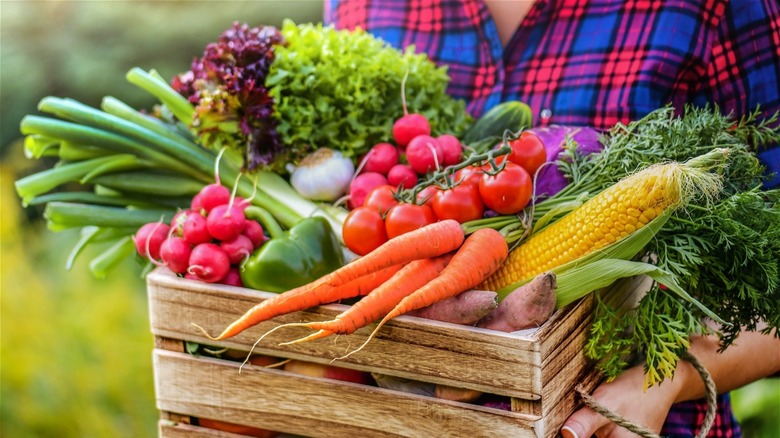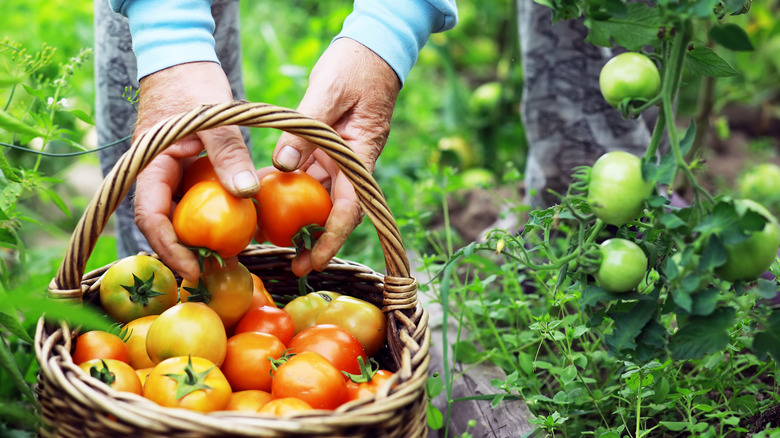Why Maine's New 'Right To Food' Law Matters
In a legislative first, Maine recently passed an amendment to the state's constitution that declared the residents of the state have the right to "grow, raise, produce and consume food of their own choosing as long as they do so within legal parameters," per The Washington Post. The amendment, which was approved by 60% of voters as part of this past Tuesday's elections, received bipartisan support. The legislation was sponsored by Republican Representative Billy Bob Faulkingham and stemmed from the desire to give communities more control over their food security.
Maine is a nationwide leader when it comes to setting a precedent on how communities can locally source and control their own food supply. The new amendment also takes aim at how corporations distribute and control food, empowering locals to reclaim their right to eat and produce food how they like. According to AP News, the new precedent received initial support from liberals, libertarians, and anti-corporate voters who envisioned a future where large business couldn't dictate how locals ate. The new legislation follows a 2017 Maine law that set the foundation for the amendment, which allowed local governments to let small-scale farmers and food producers sell their goods directly to customers on their own property. This 2017 legislation inspired a handful of other states to pass similar laws. While a resounding majority of voters support the right to food amendment, not everyone feels like it can help Maine residents.
A new era for Maine food producers
Some major associations strongly oppose the right to food amendment. According to The Washington Post, The Maine Farm Bureau said that the amendment contains unclear wording and could result in some unintended consequences. Animal welfare groups have also taken issue with the legislation, saying that the new precedent has the potential to weaken animal cruelty laws and might even lead to the proliferation of invasive species. The Maine Potato Board, the Maine Dairy Industry Association, the Maine Veterinary Medical Association, the Maine Municipal Association and the Maine Federation of Humane Societies have all come out against the legislation. Critics also mention that much of the key language in the amendment, such as the right to farm, hunt and exchange seeds, already exists in the state constitution.
Others believe that the amendment might cause smaller farms to lose federal support like free soil and water testing. After passing the 2017 law that laid down the framework for the new amendment, the U.S. Department of Agriculture warned the state that the federal government had to take over meat and poultry inspections if Maine didn't tighten their regulations. Only time can tell what happens next, but this major piece of legislation undoubtedly marks a new era for the food supply chain in Maine.

